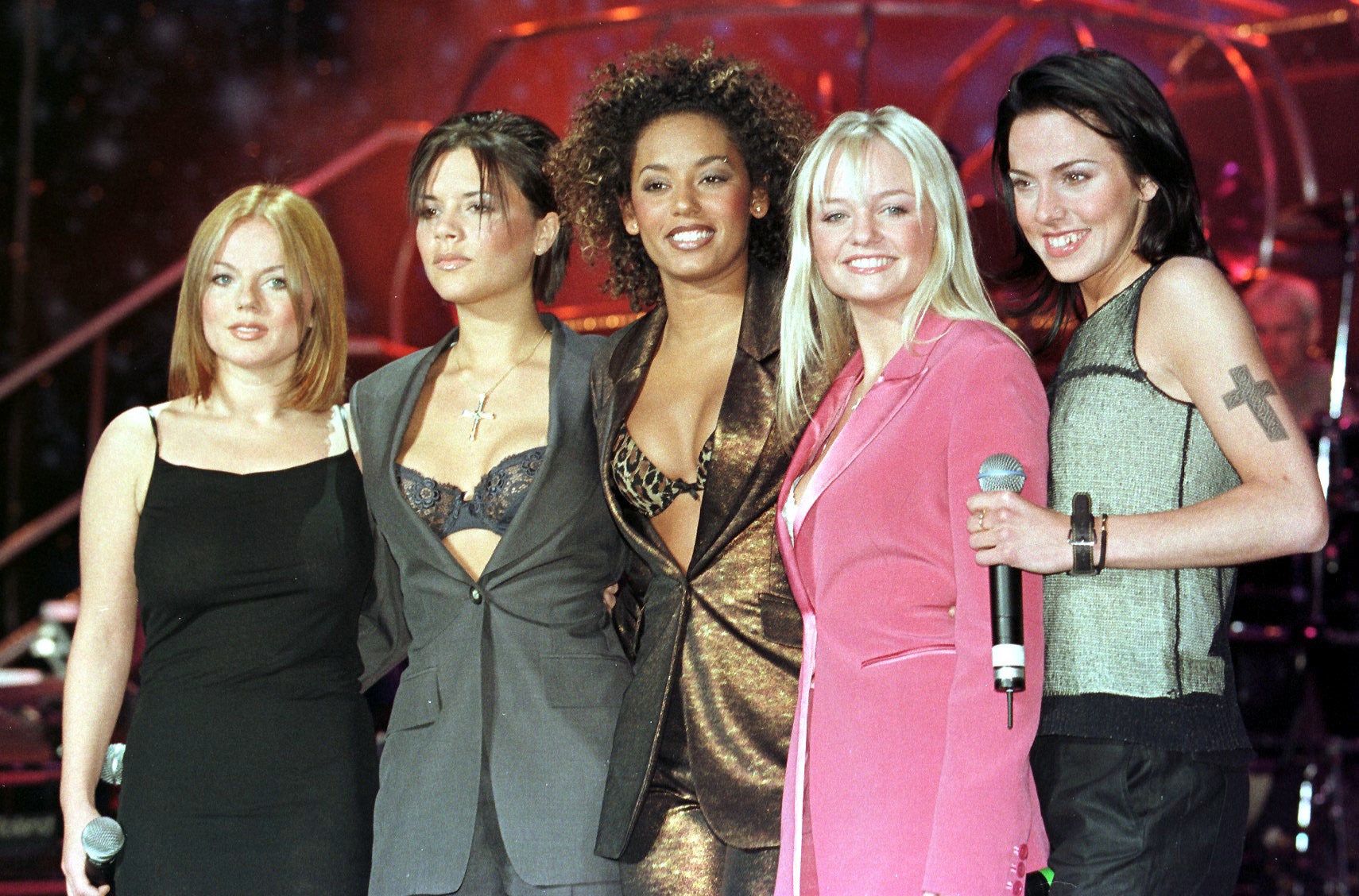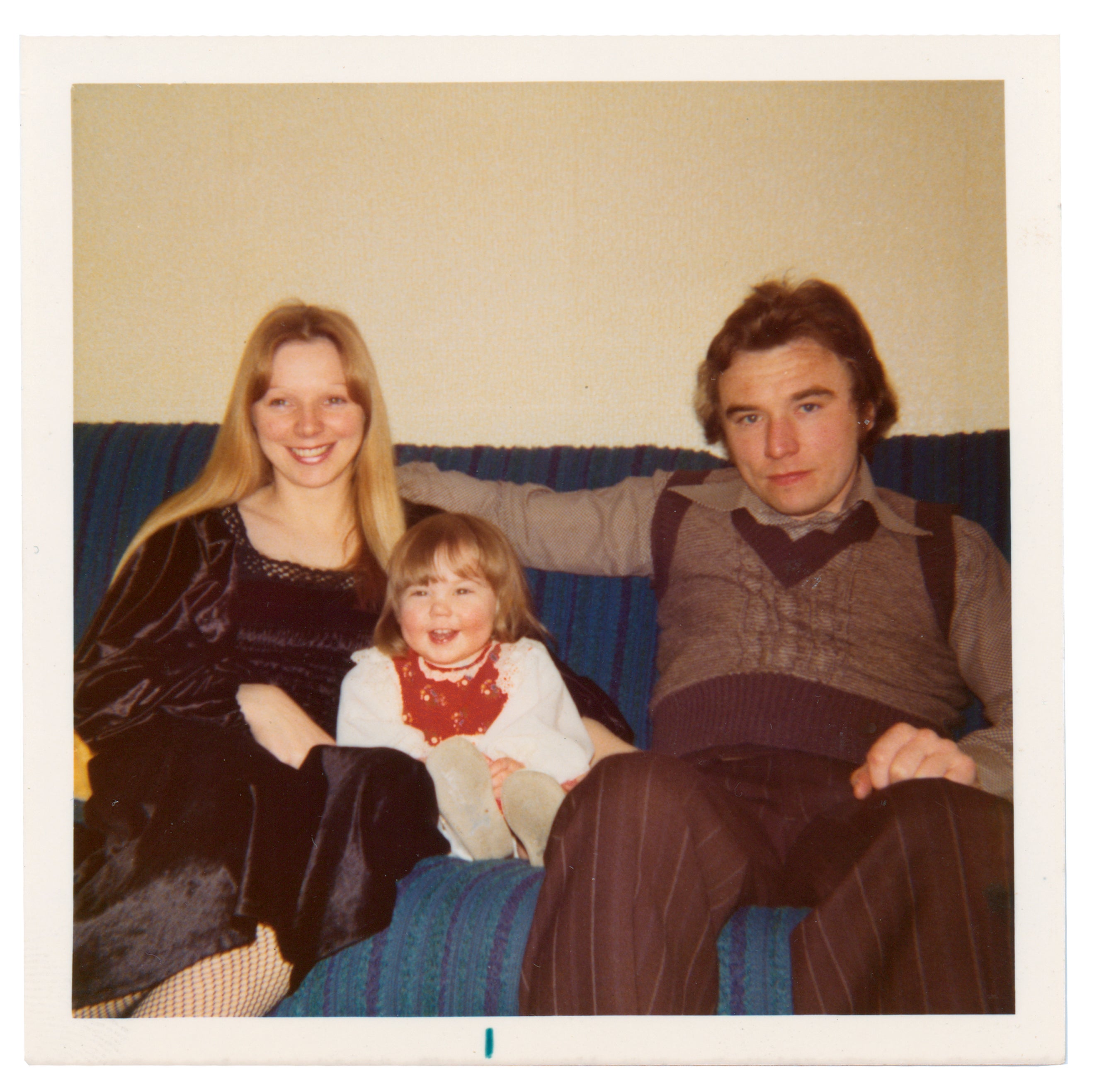
Many things were very different in the nineties, as Mel C can attest to better than most. Mental health was rarely spoken about by anyone in the public eye, depression was “almost a taboo”, she says, and women’s weight was freely discussed – to the point where Victoria Beckham and Geri Horner (then Halliwell) were weighed live on TV.
“Shocking, isn’t it? It’s my daughter’s least favourite expression, when I say it was a ‘different time’. And it really was – thank God things have changed,” says Sporty Spice, real name Melanie Chisholm, and mum to Scarlet, 13. “There’s so much more celebration of body diversity now. Young people don’t want to look skinny anymore. That’s not the aesthetic of the day, you know?”
But Spice Girls’ immediate elevation to global cultural phenomenon (eventually selling an estimated 100 million records) and the pressure to fit that popstar aesthetic at the time had a devastating impact on her mental health. At one point, after Horner left the band and when Chisholm released her first solo album, Northern Star, she was unable to leave the house.
“It felt like going outside was petrifying,” she says. “In the darkest times, in the depths of depression and eating disorders and that fear, is the security of the four walls. I think a lot of that was because I felt like the eyes of the world were on me through the media.”
The pain she was in would have been undetectable to the millions of Spice Girls fans around the globe. The band had put ‘Girl Power’ firmly into the zeitgeist and happily played up to the personas of Sporty, Baby, Scary, Ginger and Posh. Meanwhile, Chisholm felt she had to keep powering through, “like a treadmill I couldn’t get off”, she writes in her long-awaited autobiography, Who I Am, and feeling alone “with what was by now a serious eating disorder”.
She says now: “With hindsight, I think it would have been really beneficial for me to have taken a break. I think partly, I was frightened to stop, because I didn’t know what that would lead to.”
During her battle with anorexia and excessive exercise, she turned “into a robot”, with daily 10km runs followed by two-hour workouts, and restrictive eating. She was at her thinnest in 1998, after the release of the group’s second album – their last as a five-piece – Spiceworld.
“It’s like you have a big price to pay for being successful,” she explains. And she doesn’t believe she would have developed an eating disorder if she hadn’t been famous and under constant scrutiny.

Horner – who has since been open about her own battle with bulimia – did broach the subject with Chisholm at the time. “She tried to speak to me, but I just wasn’t ready to acknowledge the problem at that point.” And when her weight did increase (but not by much), headlines like ‘Sumo Spice’ emerged, which she now describes as “devastating and humiliating”.
And while fans may have seen Sporty as the strong, fun, relatable Spice, inside, her already fragile sense of self was crumbling. “I didn’t have confidence in my own thoughts and feelings. I have spent a lot of my life not trusting my own instincts and thinking everybody else knows better,” she says.

The book is also the first time Chisholm has publicly talked about being sexually assaulted during a massage, the night before the very first Spice Girls show in Istanbul. “Still to this day, it’s something I haven’t fully dealt with,” she says, explaining she felt it was important for her to share, “because it happens a lot in varying degrees. In the scale of situations like that, I think it was quite mild – but it was also wrong.
“Now, I’d never have a hope in hell of finding who this person was. But I’m thinking, ‘Wow, what could he have gone on to do?’ So I think it’s really important that we speak up.”
Her story though, is ultimately one of resilience and learning to love herself – from working class roots and, at times, a rocky childhood (she was left with someone she barely knew for five months at five-years-old, while her musician mum toured) to stratospheric success with three Spice Girls albums and eight solo studio albums.

And it’s hard to argue that Chisholm hasn’t had the most success as a solo artist of all the Spice Girls – who could forget Never Be The Same Again and the collab with Bryan Adams, When You’re Gone? And, at 48, she’s still making music, her voice just as powerful and unmistakably Mel C as it sounded some 26 years ago.
“It’s completely my wish” for all five band members to reunite once again, she says, “we still obviously have to convince Victoria…
“Victoria wouldn’t mind me saying [the Olympics 2012 show] was difficult for her, she had a lot of anxiety about that performance. Obviously, her life has moved in such a different direction, she didn’t feel like she wanted to put herself through that again – especially when the level of the Spice Girls’ profile is super high; anything we do, all eyes of the world are on us.”
Just recently, she split from partner of seven years, music producer Joe Marshall. But she’s good: “Obviously, it’s always sad when things come to an end, but [writing] the book has helped me recognise that life really is a series of chapters. It’s exciting to wonder what’s going to happen next.”

In fact, throughout the Spice Girls years, she was the only one who was mostly single, she notes, and the way singleness was so obsessively and negatively discussed in the Nineties compounded her insecurity about it. “I hate the notion that, the generation I grew up in, traditionally learned we need to be part of a couple, that it’s the thing that makes us whole. We need to find our soulmate – all that s***. [That thinking means] we’re not learning that we need to be the whole thing ourselves.”
Girl Power has come a long way since 1996. The Spice Girls wrote ‘Who Do You Think You Are’ as a response to men trying to order them about in the band’s early days (it was Horner who acted as the main catalyst pushing to write their own music and leave the managers who’d originally put them together) – and what Chisholm calls “early expressions of our version of feminism”.

She says: “It’s insane, the enormity of what we achieved in those two years and the legacy we’ve left, the impact it’s made, it still lives on – even if we’re not making music – people are still discovering the Spice Girls.”
Girl Power, she says, has infiltrated future generations. “My daughter [from previous relationship with Thomas Starr] is 13, so I see a lot of teenagers and a lot of her female friends are really vocal and opinionated and wise. I’m so impressed with the younger generation.”
A staunch ally for the LGBTQ+ community, she adds: “It wasn’t just Girl Power, it was about equality, and of course, we live in a very different time. Now there’s a lot of fluidity within gender and the way people define themselves. It’s really about being an individual and being able to be whoever you want to be.”
Who I Am: My Story by Melanie C (Welbeck Publishing, RRP £20) is available now.







